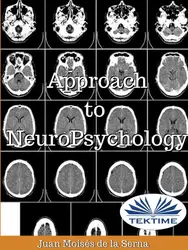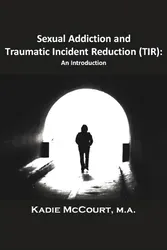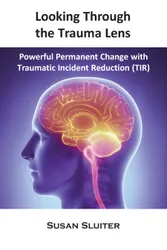Let's consider why Traumatic Incident Reduction (TIR) would be expected to be different with an autistic client. One of the hallmarks of autism is a lack of connection with the real world, so the world view of an autistic individual is limited and often very inaccurate. A second hallmark of autism is difficulty with intrapersonal and interpersonal relationships so that insight into how to make relationships better, or work at all, would be expected to be limited. So, within a TIR session where we expect our clients to come up with their own insights, that's really a tall order. Then the meltdowns I've talked about; as a Davis facilitator I understand these as prolonged and severe disorientations, analogous to a PTSD episode, in which the emotional reaction is really out of sync with true facts and conditions in the current situation. Added to all this are the phobias and the extreme aversions that many autistic individuals experience, which can limit full participation in life. One of the things that makes working with autistic clients challenging is that often we simply have to wait until they give us that little window of time when they are able and willing to proceed. If I were to use the guidelines in my TIR Workshop manual, I would have to conclude that there was not enough ego strength or resiliency in these individuals for them to be able to engage for a successful TIR session. You know what they say about fools who rush in where angels fear to tread... A less foolish person than I am, and especially someone new to TIR, would likely never have tried to use TIR with autistic clients. However, based on the wonderful results I have seen using TIR with many of my other clients who do not have autism, and some of the really significant problems that some of my autistic clients were presenting, I decided to try TIR with a few of them. In the remainder of this lecture, we'll consider two specific case studies. Veronica, a sixteen-year old who basically lived as a recluse in her mother's basement, and Joshua, a young boy obsessed with drum kits who was given to periods of extremely oppositional behavior. Cathy Dodge Smith uses Davis Methods in her practice (Davis Dyslexia Correction Program, Davis Autism Approach, and Davis Attention Mastery ). She is also a Certified TIR Facilitator. This article is from her presentation at the 2014 Symposium. Originally appeared in AMI/TIRA Newsletter, Volume XII, Number 1 (March 2015).
Kom igång med den här boken idag för 0 kr
- Få full tillgång till alla böcker i appen under provperioden
- Ingen bindningstid, avsluta när du vill
Författare:
Serie:
Metapsychology MonographsSpråk:
Engelska
Format:

Handbook for Treatment of Attachment Problems in C : An Historical Compendium of Pitching, Pitchers, an
Beverly James

Hatha Yoga Pradipika
Swami Swatmarama

Healing Scripts : Using Hypnosis to Treat Trauma and Stress
Marlene E Hunter

Mindfulness for Children : 150+ Mindfulness Activities for Happier, Healthier, Stress-Free Kids
Tracy Daniel

Guided Imagery : Psychotherapy and Healing Through the Mind Body Connection
Rubin Battino

Therapy with Tough Clients : Exploring the Use of Indirect and Unconscious Techniques
George Gafner

Overcoming Self-harm and Suicidal Thinking: A practical guide for the adolescent years
Liz Quish

Expectation : The Very Brief Therapy Book
Rubin Battino

Ego State Therapy
Gordon Emmerson

DBT Made Simple : A Step-by-Step Guide to Dialectical Behavior Therapy
Sheri Van Dijk, MSW

Think Like Einstein: Think Smarter, Creatively Solve Problems, and Sharpen Your Judgment. How to Develop a Logical Approach to Life and Ask the Right Questions
Peter Hollins

Approach To Neuropsychology
Juan Moisés De La Serna

Sexual Addiction and Traumatic Incident Reduction (TIR) : An Introduction
Kadie McCourt

Traumatic Incident Reduction (TIR) and Primary Resolution of the Post-Traumatic Stress Disorder (PTSD)
Robert H. Moore

A Proposed Treatment Connection for Borderline Personality Disorder (BPD) : Dialectical Behavior Therapy (DBT) and Traumatic Incident Reduction (TIR)
Ashley Doyle

Substance Dependency, PTSD and Traumatic Incident Reduction (TIR) in South Africa : A Social Work Perspective
Elca Erlank

Looking Through the Trauma Lens : Powerful Permanent Change with Traumatic Incident Reduction (TIR)
Susan Sluiter

Critical Issues in Trauma Resolution : The Traumatic Incident Network
Frank A. Gerbode

Brief Treatment of Trauma-Related Symptoms in Incarcerated Females with Traumatic Incident Reduction (TIR)
Pamela V. Valentine

A Comparison of Traumatic Incident Reduction (TIR) and Prolonged Exposure (PE) Therapy
Nancy L. Day
